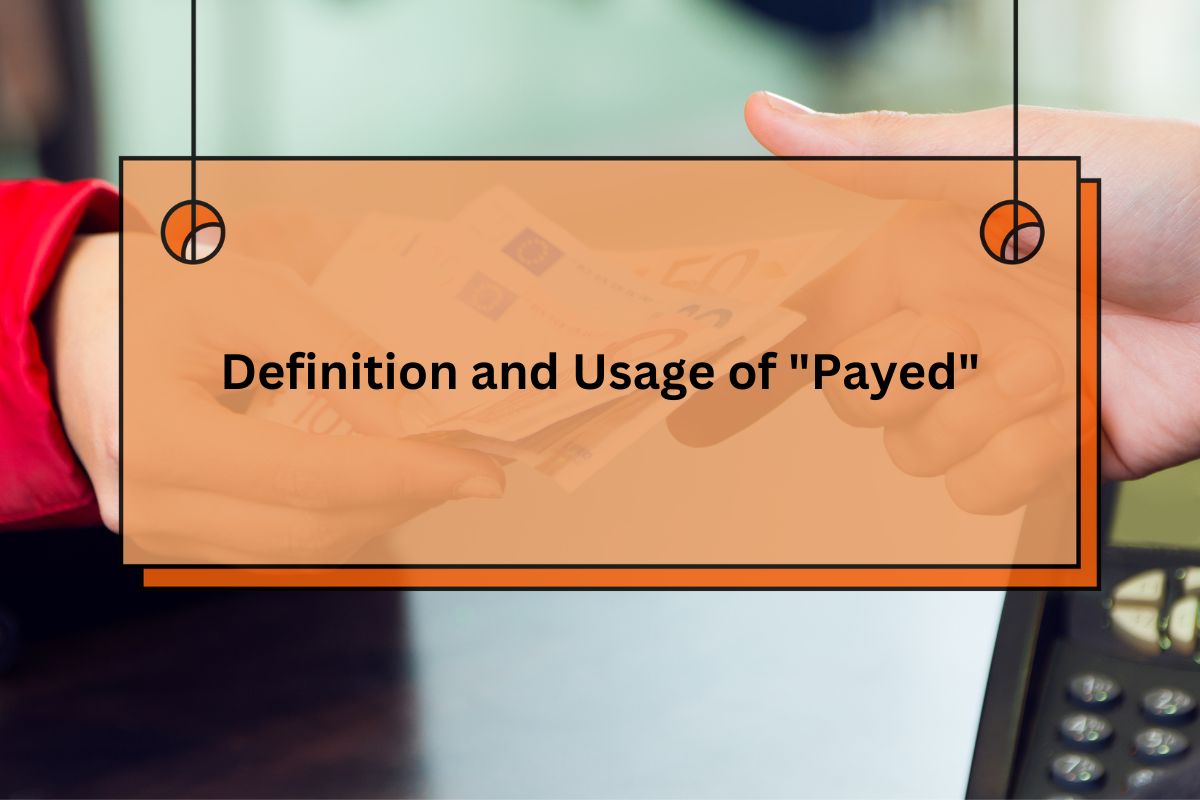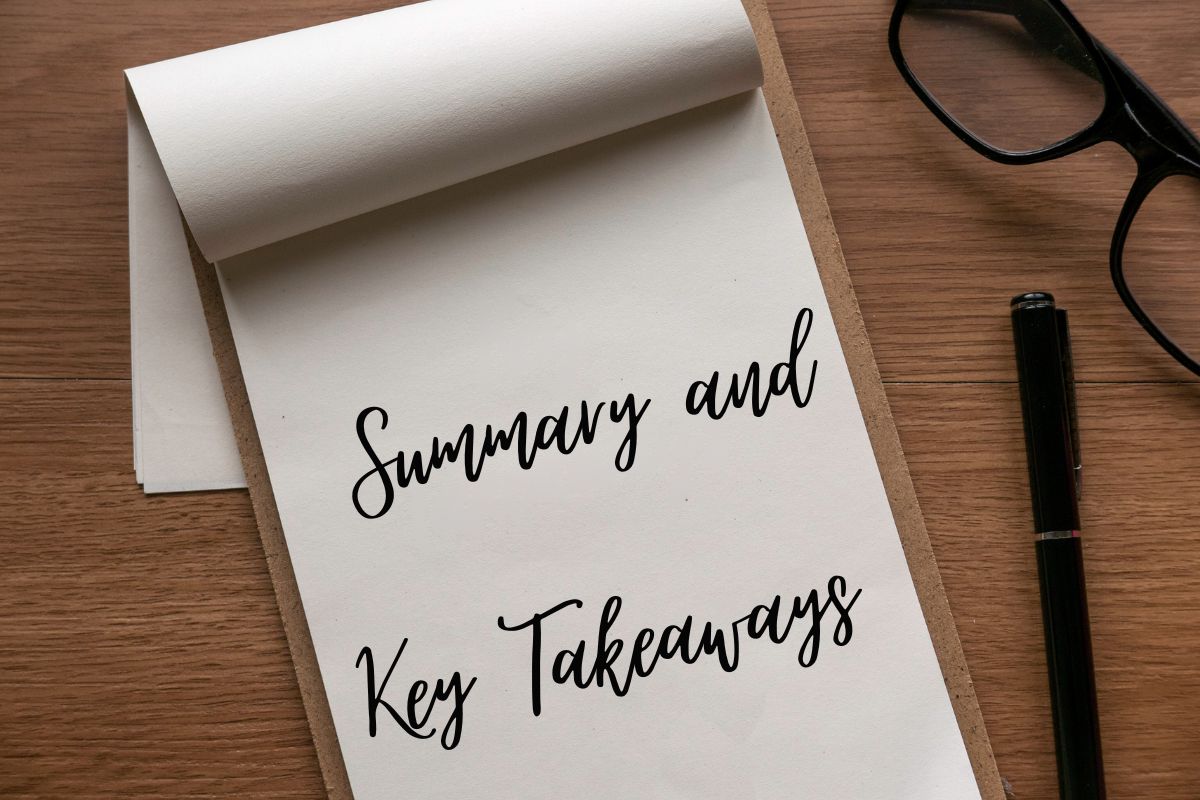“paid” and “payed” are forms of the verb “to pay,” but there is a crucial distinction between the two.
“Paid” is the correct past tense and past participle form used to describe transactions in which payment has been made.
In contrast, “payed” is a less common variant that typically refers to specific contexts involving the action of paying out (such as with ropes or sails) rather than financial transactions.
Understanding the differences between these two forms is essential for clear and effective communication in English.
![a infographic for Paid Vs Payed : Differences + Examples [My 2025 Teaching Way]](https://phoenixenglishlang.com/wp-content/uploads/2024/02/unnamed-1-1.png)
Important Points:
- Correct Usage: “Paid” is universally accepted as the standard term in all financial and transactional contexts. Examples include phrases like “I paid my bills” or “The service has been paid for.” “Payed,” however, is rarely used and is often considered incorrect in standard English when discussing money or payments.
- Contextual Application: The word “payed” finds its place in nautical or mechanical contexts where something is payed out or unreeled, such as in marine terminology. An example could be “He payed out the rope carefully.” Understanding this context is key to using “payed” appropriately.
- Forms and Conjugation: The conjugation of “pay” revolves around its standard forms: “pay” (present), “paid” (past), and “paying” (present participle).
Learners should become familiar with these forms to avoid confusion and ensure correct application in conversation and writing.
- Common Mistakes: Many learners mistakenly use “payed” in situations where “paid” is required, muddling their communication.
Being aware of this common error can assist in honing grammar skills and enhancing clarity.
- Examples for Clarity: Providing various contexts where “paid” and “payed” can be used helps reinforce their meanings.
For example: “I have paid my dues” versus “He payed out the sail to let it catch the wind.” These examples clarify the distinct meanings and appropriate usages of both terms.
You might also enjoy:Looking Forward To Seeing You: Grammar + Examples[2025]
As we delve into the topic of “Paid Vs. Payed: Differences + Examples [My 2025 Teaching Way],” we will explore a comprehensive overview of these terms, including their definitions, usage, and contextual applications.
This guide will utilize modern pedagogical approaches designed to make learning engaging and effective, ensuring that students grasp these nuances and can apply them confidently in various scenarios.
—
In the realm of English grammar, the precision of language is vital, particularly when dealing with verbs related to transactions and payments.
The distinction between “paid” and “payed” encapsulates a common challenge faced by learners, where a minor alteration in spelling can lead to significant differences in meaning and context.
Through the lens of the innovative 2025 Teaching Way, we emphasize an engaging method of learning that supports interaction and practical application.
This approach focuses on real-world scenarios, helping students understand not just the rules, but the context behind verb usage.
At its core, “paid” serves as the go-to term in financial transactions, emphasizing the completion of an action where money is exchanged.
Sentences like “I have already paid for my ticket” illustrate the straightforward use of “paid” in everyday conversations about expenses and finances.
On the other hand, “payed” should be used with care, as it is restricted to certain contexts.
When referring to nautical language, saying “They payed out the anchor” conveys the correct usage of “payed,” albeit in a specific, less common scenario.
As we explore the intricacies of “Paid Vs. Payed,” our objective is to unpack these differences through targeted examples, interactive exercises, and practical applications.
This guide is tailored to empower learners of all backgrounds, equipping them with the tools necessary to navigate these terms with confidence and clarity.
Through engaging materials and techniques, individuals will develop their language skills, enhancing both their written and spoken communication in a variety of circumstances.
You might also enjoy:Emersion Vs Immersion: Meaning, Differences, and Examples
Which one is correct Paid vs. payed?

The correct term is “paid.”
“Paid” is the past tense and past participle of the verb “pay” and is widely recognized and used in various contexts when referring to completed financial transactions.
On the other hand, “payed” is a less common term that is primarily used in nautical contexts to describe the process of sealing the seams of a wooden ship with tar or pitch.
Therefore, if you are referring to a financial transaction, “paid” is the correct term to use.
You Might Also Enjoy: Top 60 Most Common Simple Sentences In English
1. Understanding the Difference

In my classes, I often emphasize the importance of mastering the nuances of language, including understanding the differences between commonly confused words.
One such example is the distinction between “paid” and “payed.”
While they may sound similar, their usage and meanings are distinct.
“Paid” is the past tense and past participle of the verb “pay,” indicating the act of giving money in exchange for goods or services.
On the other hand, “payed” is a nautical term referring to the process of sealing the seams of a wooden ship with pitch or tar.
By grasping these subtle distinctions, we can enhance our communication skills and avoid potential misunderstandings in both written and spoken contexts.
2. Definition and Usage of “Paid”

In the realm of financial transactions, the term “paid” is commonly used to describe the act of providing compensation or remuneration in exchange for goods, services, or debts.
It signifies the completion of a monetary transaction, indicating that the agreed-upon amount has been transferred from the payer to the payee.
The usage of “paid” extends across various contexts, including business transactions, personal expenses, and contractual obligations.
In my classes, I emphasize the importance of understanding the concept of “paid” as it relates to financial literacy and responsible money management.
By comprehending the definition and usage of this term, individuals can navigate their financial obligations with clarity and make informed decisions regarding their financial resources.
It is crucial to recognize that the concept of “paid” goes beyond a mere exchange of money; it encompasses the fulfillment of one’s financial commitments and the establishment of trust and accountability in financial relationships.
Therefore, grasping the nuances of “paid” empowers individuals to effectively manage their finances, cultivate healthy financial habits, and foster positive financial interactions in both personal and professional spheres.
You might also enjoy:How Are You Fairing or Faring? Differences + Examples
3. Definition and Usage of “Payed”

In the English language, the term “payed” is often considered a misspelling or a less common variant of the word “paid.”
The correct and widely accepted form is “paid,” The verb ‘pay’ is inflected in the past tense and past participle as ‘paid’.
The word “payed” is occasionally used in specific contexts, particularly in nautical terminology.
In this context, “payed” refers to the process of sealing or waterproofing the seams of a wooden ship by applying a substance such as pitch or tar.
This practice helps to prevent water from seeping into the vessel.
In my classes, I emphasize the importance of using correct and standard English.
It is crucial to understand that language evolves, and certain variations or misspellings may emerge over time.
However, it is generally recommended to adhere to the accepted norms and rules of the language to ensure effective communication.
When discussing the usage of “payed” versus “paid,” I encourage my students to use the latter form in most situations.
“Paid” is the standard past tense and past participle of “pay” and is widely recognized and understood by native English speakers.
It is essential to develop a strong command of proper grammar and vocabulary to convey ideas accurately and professionally.
In conclusion, while “payed” may have a specific usage in nautical terminology, it is generally considered a less common or incorrect form of the word “paid.”
As educators, it is our responsibility to guide students towards using correct and widely accepted language forms to ensure effective communication in both spoken and written contexts.
4. Examples of “Paid” in Sentences

- I received a paid internship at a prestigious company.
- She worked overtime and earned paid time off as compensation.
- The company offers a competitive salary and paid benefits.
- He is a paid consultant who provides expert advice to businesses.
- The event organizers hired a paid photographer to capture the moments.
- The company reimbursed me for the paid expenses during my business trip.
- The employees are entitled to paid sick leave as per company policy.
- The actors were paid a substantial amount for their roles in the movie.
- The company provides paid training programs to enhance employee skills.
- The paid advertisement on social media helped increase brand awareness.
- The company offers paid maternity and paternity leave to support new parents.
- The athletes receive a paid endorsement deal from a popular sports brand.
- The company offers paid vacation days to employees based on their tenure.
- The paid subscription allows access to exclusive content on the platform.
- The company provides paid relocation assistance for employees moving to a new location.
- The paid membership offers additional perks and discounts to customers.
- The company offers paid volunteer days for employees to give back to the community.
- The paid software provides advanced features and enhanced security.
- The company offers paid overtime for employees working beyond regular hours.
- The paid research study compensated participants for their time and contribution.
You might also enjoy:Too Cute Meaning Vs To Cute (To Vs Too) + Examples
5. Examples of “Payed” in Sentences

“payed” is not a commonly used word in English.
The correct past tense of “pay” is “paid.” However, if you are referring to the nautical term “payed,” which means to seal or caulk a seam with pitch or tar, I can provide examples using that context:
- The shipbuilders payed the seams of the wooden vessel to ensure its watertightness.
- The sailors payed the hull of the ship to protect it from water damage.
- The maintenance crew payed the deck of the boat to prevent leaks.
- The shipwrights payed the joints of the planks to strengthen the structure.
- The captain ordered the crew to pay the seams before setting sail.
- The shipyard workers payed the keel of the ship to enhance its stability.
- The boat owners regularly payed the seams to maintain the vessel’s integrity.
- The shipbuilders payed the mast to protect it from rotting.
- The sailors payed the rigging to ensure its durability in harsh weather conditions.
- The shipwrights payed the rudder to prevent water from seeping in.
- The maintenance team payed the hatches to keep the cargo hold dry.
- The shipyard used skilled craftsmen to pay the seams of their ships.
- The captain inspected the payed seams before embarking on a long voyage.
- The boat owners hired professionals to pay the hull of their yacht.
- The shipbuilders payed the bilges to prevent water accumulation.
- The sailors payed the anchor chain to protect it from corrosion.
- The shipwrights payed the bulkheads to maintain the ship’s structural integrity.
- The maintenance crew payed the portholes to prevent water ingress.
- The shipyard had a specialized team to pay the seams of their vessels.
- The captain emphasized the importance of paying the seams regularly to avoid leaks.
6. Common Mistakes and Confusions

Firstly, let’s focus on the word “paid.”
“Paid” is the past tense and past participle form of the verb “pay.”
It is used when referring to the act of giving money in exchange for goods, services, or debts.
For example, you might say, “I paid for my groceries at the supermarket” or “She paid her bills on time.”
In these sentences, “paid” indicates the completion of a financial transaction.
On the other hand, “payed” is a less commonly used term, primarily found in nautical contexts.
It refers to the process of sealing the seams of a wooden ship with tar or pitch to make it watertight.
This practice was prevalent in the past when ships were constructed using wooden planks.
Nowadays, it is more commonly spelled as “pitched.” An example sentence using “payed” could be, “The sailors payed the ship’s hull to prevent leaks.”
It is crucial to note that “paid” is the correct term to use in most situations, especially when discussing financial matters.
“Payed” is a specialized term that is limited to specific contexts related to shipbuilding and maintenance.
Therefore, it is essential to use the appropriate term based on the intended meaning and context of your sentence.
In my classes, I emphasize the importance of understanding the nuances of words and their correct usage.
By clarifying the distinction between “paid” and “payed,” I aim to equip my students with the knowledge to communicate effectively and accurately in written and spoken English.
Remember, precision in language is key to conveying your intended message clearly and professionally.
You might also enjoy:What Kind of Vs What Kinds of – Differences + Examples [2025]
7. Summary and Key Takeaways

Summary:
The concept of “paid” versus “payed” often causes confusion due to their similar spellings and pronunciations.
However, they have different meanings and usage in the English language.
“Paid” is the past tense and past participle of the verb “pay,” which means to give money in exchange for goods or services.
It is commonly used when referring to completed financial transactions.
On the other hand, “payed” is a less common term that is primarily used in nautical contexts.
It refers to the process of sealing the seams of a wooden ship with tar or pitch to make it watertight.
While “paid” is widely recognized and used in various contexts, “payed” is limited to specific maritime discussions.
Key Takeaways:
- “Paid” is the correct term to use when referring to completed financial transactions, while “payed” is primarily used in nautical contexts.
- “Paid” is the past tense and past participle of the verb “pay,” indicating the act of giving money in exchange for goods or services.
- “Payed” is a less common term that specifically refers to sealing the seams of a wooden ship with tar or pitch to make it watertight.
- It is important to use the correct term based on the intended meaning and context to ensure clear communication.
- While “paid” is widely recognized and understood, “payed” is limited to specific discussions related to maritime activities.

Hi, welcome to my blog! My name is Omid and I am thrilled to have you here! I am an English language teacher with 12 years of experience and hold multiple international certifications (TESOL, IELTS, TOEFL, PTE, CELTA). Additionally, I hold a PhD in Applied Linguistics with a specialization in Teaching English as a Second Language (TESL), which fuels my passion for teaching English and assisting others in mastering the language. To me, nothing is more rewarding than helping individuals enhance their English language abilities through various methods. So, let’s embark on this journey of learning English together.




